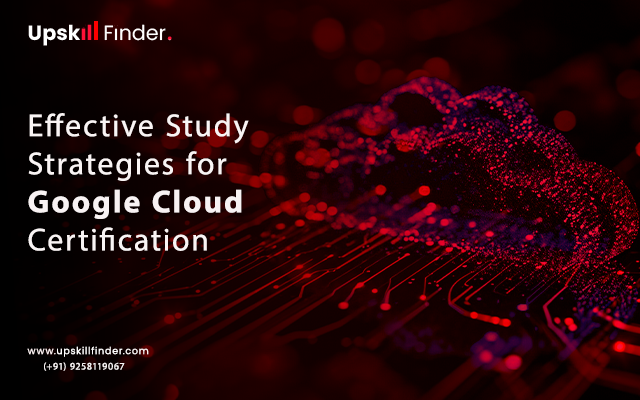
Google Cloud certifications are highly respected in the tech industry, demonstrating a professional’s expertise and commitment to staying current with cloud technologies. In 2024, the demand for skilled cloud professionals continues to rise, making these certifications even more valuable. This article provides study strategies and resources to help you successfully prepare for and ace Google Cloud certification exams.
Understanding Google Cloud Certifications
Google Cloud offers several certification tracks to cater to various roles and expertise levels. The most popular certifications include:
- Associate Cloud Engineer
- Professional Cloud Architect
- Professional Data Engineer
- Professional Cloud Developer
- Professional Cloud Security Engineer
- Professional Cloud Network Engineer
- Professional Collaboration Engineer
Exam Structure
Each Google Cloud certification exam has a unique structure, but they generally include the following elements:
- Multiple Choice Questions (MCQs):
- Most exams consist of multiple-choice and multiple-select questions.
- Case Studies:
- Some exams include case studies that require you to apply your knowledge to real-world scenarios.
- Time Limit:
- Exams typically have a time limit of 2-3 hours, depending on the certification level.
- Passing Score:
- The passing score varies by exam but generally ranges between 60-70%.
- Delivery Method:
- Exams can be taken at a testing center or remotely, depending on your preference and availability.
Study Strategies for Google Cloud Certification Exams
- Understand the Exam Objectives
- Each Google Cloud certification has a detailed exam guide outlining the topics covered. Thoroughly review these objectives to understand the scope and focus of the exam.
- Hands-On Practice
- Practical experience with Google Cloud services is crucial. Use the Google Cloud Free Tier to practice deploying and managing resources. Labs and real-world projects will enhance your understanding and retention of the material.
- Structured Learning Paths
- Follow structured learning paths provided by Google Cloud and other reputable training platforms. These paths include a combination of video lectures, hands-on labs, and practice exams, ensuring comprehensive coverage of the exam topics.
- Leverage Google Cloud’s Official Resources
- Google Cloud offers extensive documentation, whitepapers, and quickstarts. These resources are invaluable for in-depth understanding and quick reference.
- Join Study Groups and Online Communities
- Engaging with peers preparing for the same exam can provide support, motivation, and diverse perspectives. Join forums, study groups, and social media communities focused on Google Cloud certifications.
- Regularly Take Practice Exams
- Practice exams help you gauge your readiness and identify areas that need more focus. They also familiarize you with the exam format and time constraints.
Exam Tactics
- Read Questions Carefully
- Pay close attention to each question and read all the options before choosing an answer. Some questions are designed to test your attention to detail.
- Manage Your Time
- Keep track of time and pace yourself. Don’t spend too much time on any single question. If you’re stuck, move on and return to it later if time permits.
- Eliminate Wrong Answers
- Narrow down your choices by eliminating obviously incorrect answers. This increases your chances of selecting the correct one.
- Understand the Scenario
- For case studies, carefully analyze the scenario and requirements. Apply your knowledge systematically to solve the problem presented.
- Review Your Answers
- If time allows, review your answers before submitting the exam. Look for any mistakes or questions you may have skipped.
Recommended Resources for Google Cloud Certification Exams
- Google Cloud Training and Certification
- Google Cloud Training offers a variety of learning resources, including on-demand courses, instructor-led training, and certification preparation workshops.
- Upskill Finder
- Upskill Finder provides courses, hands-on labs, and quizzes specifically designed for Google Cloud certifications.
- Google Cloud Documentation and Whitepapers
- Google Cloud’s official documentation and whitepapers provide detailed information and best practices for using Google Cloud services.
- Qwiklabs
- Qwiklabs offers hands-on labs that simulate real-world scenarios, allowing you to gain practical experience in a controlled environment.
Tips for Exam Day
- Review Key Concepts
- The day before the exam, review key concepts, diagrams, and notes. Avoid cramming new information at this stage.
- Get a Good Night’s Sleep
- Ensure you are well-rested before the exam. A clear mind improves concentration and problem-solving abilities.
- Manage Your Time
- During the exam, carefully manage your time. Allocate time for each question and avoid spending too long on any single question.
- Stay Calm and Focused
- Read each question carefully and eliminate obviously incorrect answers. Stay calm and focused throughout the exam.
Staying Current with Google Cloud Technologies
Cloud technologies evolve rapidly, and it’s essential to stay updated even after achieving certification. Here are some ways to stay current:
- Follow Google Cloud Blogs and Newsletters
- Subscribe to Google Cloud blogs and newsletters to receive updates on new features, best practices, and case studies.
- Attend Google Cloud Events and Webinars
- Participate in Google Cloud events, webinars, and conferences to learn about the latest advancements and network with other professionals.
- Engage in Continuous Learning
- Take advantage of new courses, labs, and certifications to continuously expand your skills and knowledge.
Conclusion
Acing Google Cloud certification exams requires a combination of structured learning, hands-on practice, and consistent effort. By leveraging the resources and strategies outlined in this article, you can confidently prepare for and succeed in your Google Cloud certification journey. Stay committed to continuous learning and practical application to maximize the value of your certification and stay ahead in the ever-evolving field of cloud computing.

